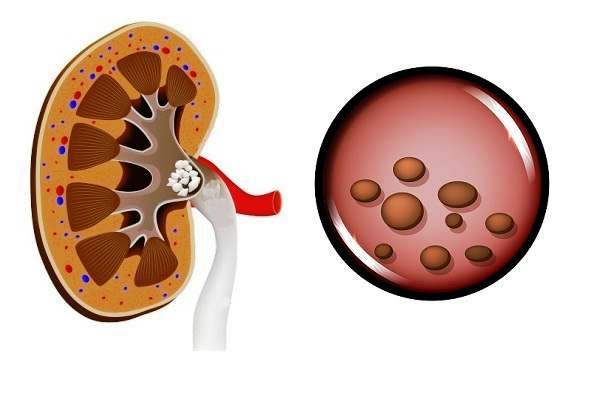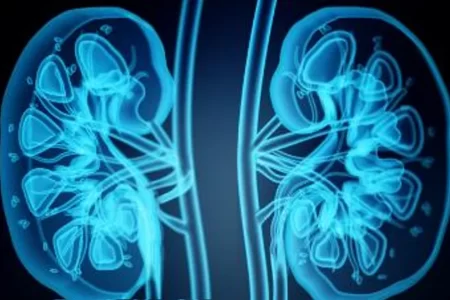
What are uric acid stones?
Uric acid kidney stones are one of the major forms of kidney stones found in your body. Uric stones develop when there is too much uric acid in your body. Uric acid is a waste product generally excreted in urine. In normal condition, uric acid gets out of your body when it is diluted by your urine. However, when there is too much uric acid in your body it starts making crystals of itself. Various tiny crystals of uric acid join together and result in uric acid kidney stones.
What are the various causes and risk factors of uric acid kidney stones?
There are various causes of uric acid kidney stones. You are more prone to uric acid stones if:
- your body produces too much uric acid
- you have gout or diabetes
- you have inflammatory bowel disease
- you consume foods high in purines such as beef, poultry, pork, eggs, and fish
- you are dehydrated and don’t have enough urine to dilute the uric acid
- you are overweight
- you have gone through chemotherapy
What are uric acid stone symptoms?
Almost all types of kidney stones have similar symptoms, including one or more of the following:
- Pain in the lower back, sides, abdomen, or groin because of the result of irritation or blockage inside the kidneys or urinary system
- Blood in the urine
- Foul-smelling urine
- Nausea or vomiting
- Fever and chills
- Frequent but small amount of urination
- Urine that smells bad or is cloudy during a urinary tract infection
Urinary tract infection also causes pain in the same areas as uric acid stone does. You should meet your doctor to rule out any confusion if you feel pain in those areas as described above.
What is the diagnosis and treatment of uric acid kidney stones?
A healthcare provider can diagnose uric acid stones. He/ she will ask for your medical history and will perform a physical examination. He/ she may recommend an X-ray or other imaging tests to reveal the size, number, and location of uric acid stones.
Your doctor may also send the stone for laboratory analysis if it comes out with your urine to confirm what type of stone it is.
Your blood and urine samples will be tested for abnormal levels of certain chemicals.
Uric acid stones having a size smaller than seven millimeters (7 mm) in diameter may pass out of your body on their own. However, it may take up to three weeks. Even if the stone passes on its own, it is advised that you seek medical attention. Alpha-blockers category of drugs may encourage the passage of stones located in the lower ureter.
Drinking plenty of fluids is the most crucial step in treatment. Higher levels of fluids encourage urination which can flush away materials that might form stones. All type of fluids can be counted towards higher intake but the best option is water.
Surgery may be needed to remove stones if the uric acid stones are large, block the flow of urine, cause infection, or have not passed after four to six weeks.
How can you prevent yourself from uric acid stones?
You can prevent uric acid stone formation if you do the following:
- Drink at least 12 cups of fluids daily preferably water
- Decrease intake of foods rich in purines
- Increase the intake of fruits and vegetables, low-fat dairy products, and whole grains
- Maintain a healthy weight
- Reduce the amount of alcohol consumption
- Avoid crash dieting, it increases uric acid levels in the blood
You may also need to take prescribed medications to prevent the development of uric acid stones and keep them from coming back.
Uric acid kidney stones are one of the major forms of kidney stones found in your body. Uric stones develop when there is too much uric acid in your body. Uric acid is a waste product generally excreted in urine. In normal conditions, uric acid gets out of your body when it is diluted by your urine. However, when there is too much uric acid in your body it starts making crystals of itself. Various tiny crystals of uric acid join together and result in uric acid kidney stones.
Frequently Asked Questions
What role does diet play in the formation of uric acid kidney stones?
Diet plays a significant role in the formation of uric acid kidney stones. Consuming foods high in purines, such as red meat, seafood, and alcohol, can increase uric acid levels in the urine, contributing to stone formation.
How can uric acid kidney stones be prevented?
Preventive measures for uric acid kidney stones include staying hydrated, following a low-purine diet, reducing alcohol consumption, maintaining a healthy weight, and monitoring urine pH levels to ensure they remain in the optimal range.
Are there any medications available to prevent recurrence of uric acid kidney stones?
Yes, medications such as allopurinol may be prescribed to reduce uric acid levels in the urine and prevent the formation of uric acid kidney stones. However, medication should be used in conjunction with lifestyle changes for optimal effectiveness.
What are the symptoms of uric acid kidney stones?
Symptoms of uric acid kidney stones are similar to those of other types of kidney stones and may include severe pain in the back, side, or lower abdomen, blood in the urine, frequent urination, and difficulty passing urine.
Can stress or certain medications increase the risk of developing uric acid kidney stones?
Yes, stress and certain medications, such as diuretics or medications that raise uric acid levels, can increase the risk of developing uric acid kidney stones. It's important to discuss potential risk factors with a healthcare professional.






